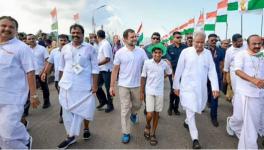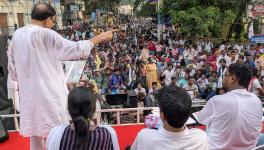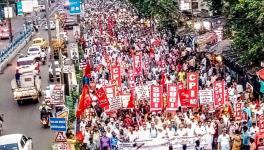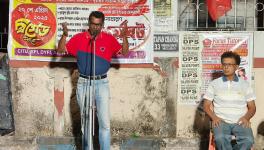“If Misinformation Continues to get Political Patronage, the Fake News Ecosystem will Continue to Flourish”
The propaganda of misinformation and hoaxes disseminated through print, graphics, and the internet has altered the social landscape of India. It has led to multiple cases of lynching, mob violence, defamation and riots, and continues to pose a serious threat to Indian democracy.
India Misinformed: The True Story identifies the purveyors of fabricated news, exposes the propaganda machinery and familiarises readers with techniques to detect these menacing stories. The book is written by the team of Alt News, a fact-checking website that debunks fake information, and edited by Pratik Sinha, Dr Sumaiya Shaikh and Arjun Sidharth. The following are excerpts from the Foreword written by Ravish Kumar and the Introduction to the book.
यहां फ़ेक न्यूज़ के कारण लोगों की हत्याएं हुई हैं। फ़ेक न्यूज़ के ज़रिये मज़हब के आधार पर दुश्मन तय किया गया। उस दुश्मन से असुरक्षा बढ़ती जाए इसके लिए फ़ेक न्यूज़ फैलाया गया। विचारधारा से प्रभावित होकर किसी राजनीतिक दल के करीब आने वाले समर्थकों को फ़ेक न्यूज़ के ज़रिये उसी रंग की एक दूसरी विचारधारा दी गई, जिससे उनकी राजनीतिक निष्ठा बदलने के जगह और गहरी हो जाती और उनका इस्तमाल हथियार के रूप में बदल दिया जिन तक दिन-रात तरह-तरह के ऐसे न्यूज़ पहुंचाए गए। नतीजा: सड़क पर लोग मारे जाने लगे। एक बार जब भीड़ बन जाती है तो उसे दुश्मन का रंग नज़र नहीं आता है। पहलु ख़ान भी मारा जाता है और सुबोध कुमार सिंह भी। कई बार हत्या के बाद जायज़ ठहराने के लिए फ़ेक न्यूज़ गढ़े गए या न्यूज़ को इस तरह कवर किया गया कि सब कुछ फ़ेक लगने लगे। यहां तक कि दर्शक और पाठक को पहलु ख़ान और सुबोध कुमार सिंह कि हत्या भी फ़ेक लगने लगा।
[…]
In the past two years, certain clear patterns of misinformation have emerged. A prominent portion of this right-wing (RW) propaganda seems to be anchored around misinformation targeting minorities. From fake videos claiming that Muslims celebrated Pakistan’s win over India in Champion’s Trophy to falsely suggesting that the name of the driver of the ill-fated train that ran over several devotees on Dussehra in Amritsar was Imtiaz Ali, a concerted and organized attempt was being made to polarize by projecting minorities in a negative light and blaming them for real and imaginary crimes across the country.
The themes of nationalism also frequently surface in fake news stories in the form of rumours of Pakistan’s flag being sighted or ‘Pakistan Zindabad’ slogans being heard in the rallies of political opponents of nationalist parties.
Distortion of history has also been a prominent theme. From pictures of Jawaharlal Nehru showing affection to his sister and niece shared as evidence of his ‘character’ to allegations that Indian football team had to play barefoot because of him, India’s first prime minister remains one of the favourite targets of fake news.
Misinformation was also weaponized to target individuals such as journalists, activists, liberals and anyone who was critical of the right-wing ecosystem. Misinformation was also enthusiastically used to make misleading claims about the achievements of the union government. We saw fake endorsements of PM Modi by international leaders and a piece of misleading news about a Nobel laureate applauding demonetization.
In the first year, a large majority of misinformation came from the right-wing camp in India, but in the last twelve months, the non-RW political ecosystem has started to increasingly contribute to the spread of misinformation.
Misinformation peaks during certain times. Elections see a surge in false claims and accusations by rival political parties while any form of communal disturbance leads to fake news that seeks to further polarize communities. During the West Bengal riots, a still from a movie was widely circulated as a picture of a Hindu woman being molested by Muslims.
With multiple fact-checking websites working in tandem, prominent accounts on social media which had previously put out multiple instances of misinformation became vigilant. However, anonymous accounts started becoming the seeds of misinformation, especially on Twitter. At that same time, multiple Facebook pages came up and started churning out propaganda in a very professional manner which included quality infographics and videos. Alt News also discovered Facebook groups that were a dedicated marketplace for buying and selling of political Facebook pages. Themes such as the Indian Army, cricket players such as Virendra Sehwag, politicians such as Narendra Modi and Yogi Adityanath were seemingly common for these Facebook political pages. Quite a few of these pages had over a million followers and were apparently sold at hefty prices.
While misinformation was on the rise, instead of becoming allies, mainstream media became a part of the problem. While the misinformation on social media often comes from a position of malice, misreports in mainstream media was as if a function of the business model adopted by several Indian media outlets. Thanks to tight deadlines with pressures of producing unending content for web portals and 24×7 TV channels, fact-checking was done away with.
The most disturbing trend in this rise of fake news is the patronage it receives from political parties. Fake news doesn’t exist in a vacuum. To thrive, it needs support not just from those who fall for it but also from those who benefit the most from it. Several Twitter users who routinely spread misinformation are followed by union ministers and in many cases, even the prime minister of the country seems to be doing so. Many of them proudly display their pictures with the leaders on their profiles. If misinformation continues to get political patronage, the fake news ecosystem will continue to flourish.
Pratik Sinha is the co-founder and editor of Alt News. He is also a member of Jan Sangharsh Manch which is a civil liberties organisation based in Ahmedabad.
Ravish Kumar, acclaimed writer, journalist and social commentator, is Senior Executive Editor with NDTV India. He is the author of several books including The Free Voice: On Democracy, Culture and the Nation and Dekhte Rahiye.
These are excerpts fromIndia Misinformed: The True Story edited by Pratik Sinha, Dr Sumaiya Shaikh and Arjun Sidharth and published by Harper Collins. Republished here with permission from the publisher.
Get the latest reports & analysis with people's perspective on Protests, movements & deep analytical videos, discussions of the current affairs in your Telegram app. Subscribe to NewsClick's Telegram channel & get Real-Time updates on stories, as they get published on our website.
























